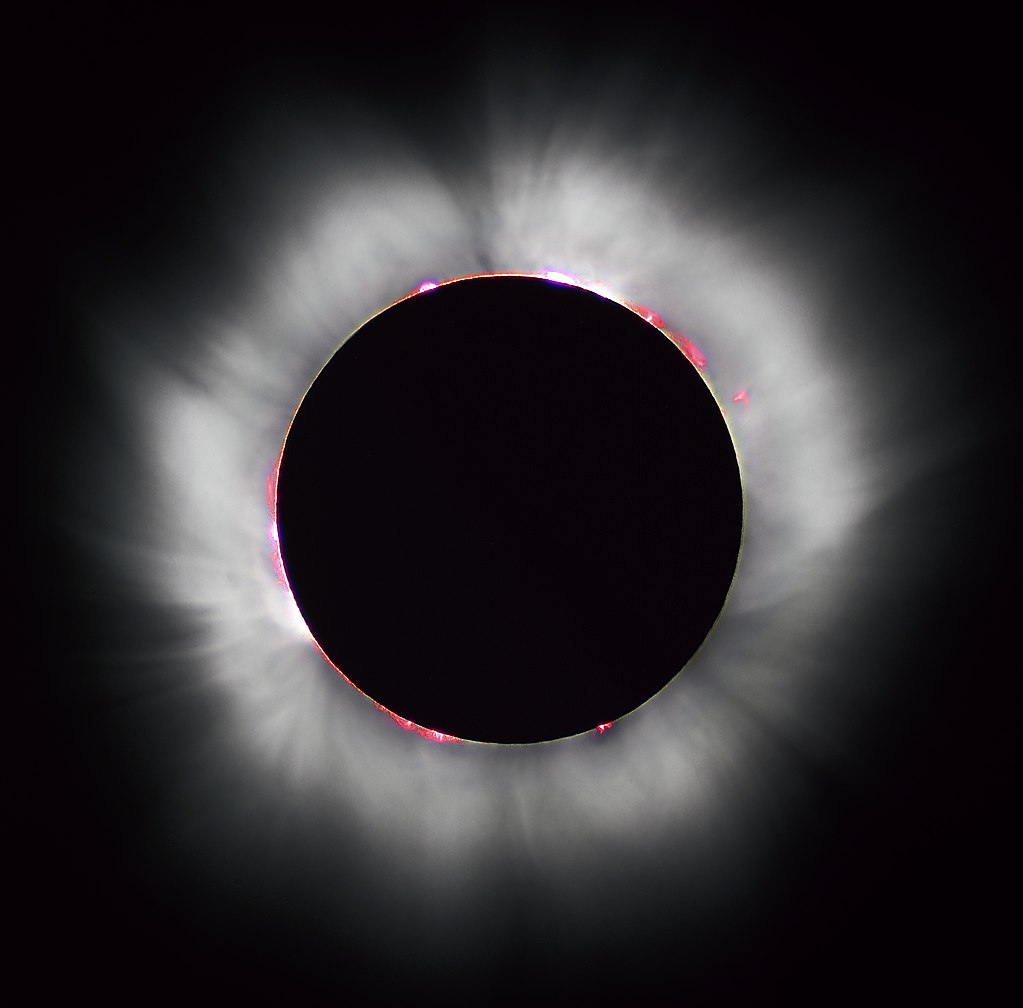[Greek] σκιά (skia), [Latin] umbra, [Old English] sceadwe: shade, shadow, foreshadowing; Mt.4:16, Mk.4:32, Lk.1:79, Acts 5:15, Col.2:17, Heb. 8:5, Heb.10:1

A solar eclipse. The moon is in shadow (penumbra).
Background information:
Greek Hellenism: This term means shadow, shade, copy, unreality (of an object), what is fleeting or empty, vanity, phantom, worthlessness, reflection, silhouette, and uninvited guest. Sophocles’ Ajax 125 states “For I see that all we who live are nothing more than phantoms or fleeting shadows.” Euripides’ Andromarche 745 states “But as for your words, I bear them with patience. For a shadow that walks, you have a voice but are powerless to do anything but speak.” Xenophon’s Memorabilia 2.1.22 states “And there appeared two women of great stature. One was fair to see and of high importance. The other was plump and soft. Now one eyed herself, anon looked whether any noticed her, and often stole a glance at her own shadow.” Plato’s Republic 517d states “Do you think it all strange if a man returning from divine contemplation to the petty miseries of mean cuts a sorry figure becomes sufficiently accustomed to the environing darkness.”
Old Testament: This term, used in a metaphorical and literal sense, means shade, shadow, and darkness. Shadows are found with sundials, trees (plants), clouds, roofs, mountains, God’s protectiveness (shelter). Darkness, frequently described as the shadow of death, pertains to vanity, corruptibility, and disobedience, and separation. Even though I walk through the valley of the shadow of death (Psa.23:4). There is no darkness or deep shadow (Job 34:22). May darkness and gloom claim it (Job 3:5). The mountains were covered by its shadow (Psa.80:10). O God! We take refuge in the shadow of your wings (Psa.36:7). My days are like a lengthening shadow (Psa.102:11). Before I go whence I shall not return, to the land of darkness and of gloom (Job 10:21). Anguish has taken wing, dispelled is darkness (Isa.9:1).
New Testament: This term means shade, shadow, and foreshadowing (facsimile). The mature mustard plant’s large branches provide shade for the birds. The sick were laid down on cots and mats so that Peter’s shadow might fall on them. Prophecy (Isa.8:22 to Isa.9:1) was fulfilled when Jesus resides at Capernaum. Capernaum is in the region of Zebulum and Naphtali, two territories which where tribes were destroyed by the Assyrians. Hebrews employs Hellenistic dualism to compare and contrast the Old Testament and the New Testament. The Law is only a shadow of the covenant that Jesus brings. The existing Hebrew worship area is a copy and shadow of the heavenly sanctuary.
Scripture:
“But once it is sown, it springs up and becomes the largest of plants and puts forth large branches, so that the birds of the sky can dwell in its shade.” Mk.4:32
The mustard tree grows into the largest of trees, providing ample shade.
“The people who sit in darkness have seen a great light, on those dwelling in a land overshadowed by death light has arisen.” Mt.4:16
By coming to Capernaum, Jesus fulfills prophecy in becoming a light in the region of Zebulum and Naphtali, previously conquered by the Assyrians.
“They worship in a copy and shadow of the heavenly sanctuary.” Heb.8:5
This worship area is just a shadow of the heavenly sanctuary.
Umbrage: Used since the early 15th century, this term means shadow, darkness, and shade. Umbrage can also mean the suspicion that one has been slighted. The phrase ‘to take umbrage at’ is attested from the 1670’s. Although this phrase is not commonly used, its meaning can be applicable in any time period. Interestingly, this notion is related to the more current phrase ‘to throw shade,’ meaning to subtly insult someone or something. There now is shadow banning, a practice of blocking (or partially blocking) a user or their content from an online community.
Etymology: The Greek noun episkopos (bishop) is essentially one who shadows (skiazo) over (epi-) others. An umbrella is a diminutive form of the Latin umbra. A penumbra is the shadow of an eclipse of a celestial body (sun, earth, and moon). A squirrel (skiouros) essentially means “shadowed-tailed”.
Conclusion:
Shade, shadow, umbra, umbrella, episcopal, squirrel, penumbra, umbrage, scatter
In the Greek Hellenistic era, it was interesting to discover the wide range of meanings for this term. These are directly tied to the Hellenistic concept of dualism (copy/original), (old/new), (promise/fulfillment), and (shadow/reality). Such meanings include vanity, emptiness, what is fleeting, appearances, reputation, and uninvited guests.
In the Old Testament, the shadow of death is essentially a separation from God. Shade (shadow) is found in many situations. God also provides shade (shelter) for those in need. Capernaum is in the region of those cities which were conquered by the Assyrians. The Hellenistic notion of dualism serves to define and contrast Jesus and heavenly worship.
For many of us, a great sense of darkness has come upon our country in the form of censorship, cancel culture, restriction of the freedoms of speech and assembly, and disastrous policies of this new administration.
Update: Many Americans have taken umbrage with the Supreme Court’s ‘weak kneed’ and cowardly response to the 2020 election lawsuits. These actions will serve to further erode the American people’s confidence in elections. Essentially, all of the govt. institutions have failed the American people. In his dissenting opinion, Justice Thomas states:
“One wonders what this Court waits for. We failed to settle this dispute before the election, and thus provide clear rules. Now we again fail to provide clear rules for the future elections. The decision to leave election law hidden beneath a shroud of doubt is baffling. By doing nothing, we invite further confusion and erosion of voter confidence. Our fellow citizens deserve better and expect more of us. I respectfully dissent.”
I have no shadow of a doubt that this will spark a national movement to ensure election integrity (with forensic examination of ballots). This movement already has and will come from the citizens (at the grassroots level).
